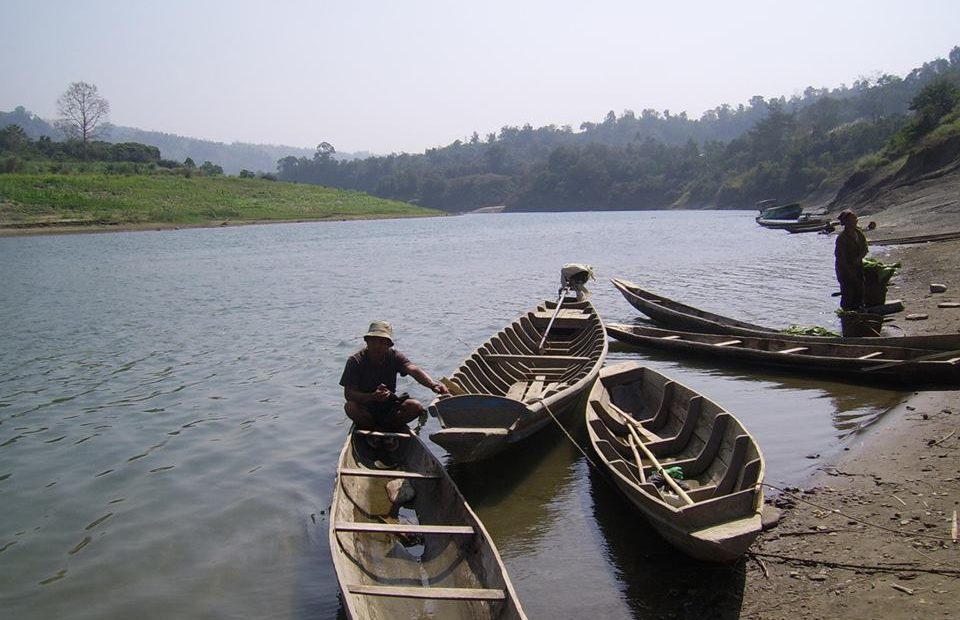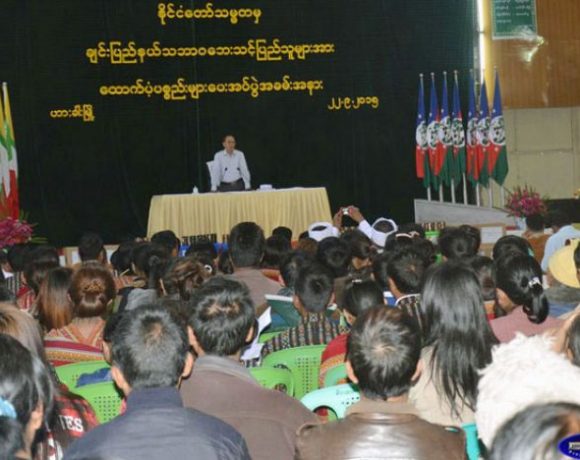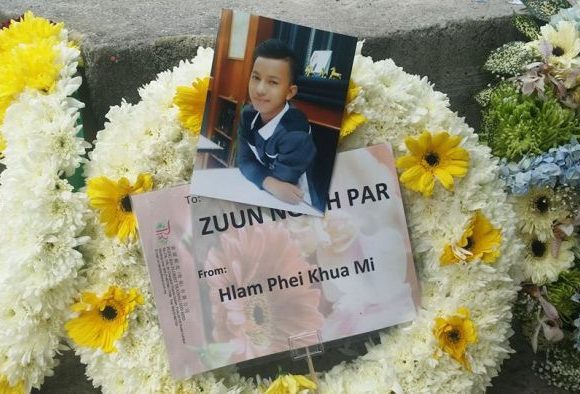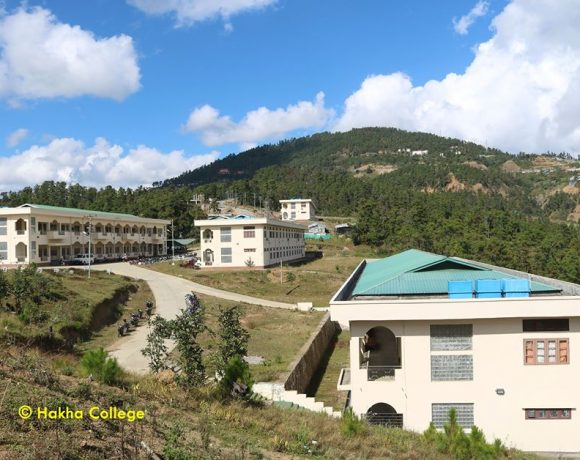Climate of fear: Civilian disappearances grip communities in Paletwa Township of Chin State

The issue of missing persons is inherent to all armed conflicts, but it has been particularly acute in recent years in Myanmar’s Chin State.
By SANG HNIN LIAN
“A few days before my brother disappeared, he told us that he would go to our village to meet our parents and ask for their blessings.”
“We are seven siblings and my brother Salai Aung Soe is the fifth one. He left our home, Kakuwa village in Paletwa Township, Chin State almost 10 years ago,” said his elder sister.
Settled in Paletwa, Salai Aung Soe started up a small shop selling sports accessories in one of the westernmost towns of Myanmar. And later, he ran a small teashop which did not bring much success.
All the siblings repeatedly told him to go home for parental blessings as his business adventures had never worked out since his move to Paletwa. It is a common Chin traditional belief to relate business achievement to blessings from parents.
“The last time I talked to Salai Aung Soe was quite a while ago, but he had a regular conversation with my younger brother. A few days before he was arrested in July 2020 by the Arakan Army, he [Salai Aung Soe] told him that he too felt awful and that he would go home in September as he had a hectic schedule until the end of August,” recalled his elder sister.
Salai Aung Soe met his friends at a hotel in Sittwe, Rakhine State on his return from Yangon. They all went together to Kyauktaw and took a different route to Paletwa via Pyichuang as the regular waterway along Kaladan River had been blocked since February 2020 as a result of the ongoing fighting between Myanmar’s military – the Tatmadaw – and the Arakan Army (AA). Salai Aung Soe and his friends were suddenly stopped by an unknown armed group.
“We stopped for lunch at Nga Thar Shar village in Rakhine State. As we continued our journey, we realized that we were followed by a boat with non-uniformed men carrying guns. They approached and ordered us to stop when we reached Bedon village,” said an eye-witness to Chin Human Rights Organization (CHRO).
“As soon as the gunmen started talking to us, we knew that they were of the Arakan Army. First, they asked whether Salai Aung Soe was in the boat with us. Once they found out that he was actually with us, they took him together with another three, Salai Khin Maung Tun, Salai Aung Tun Ko, and Salai Benjamin. They said that they had questions for the four men from Paletwa and told us not to wait for them,” continued the eye-witness.
Three of the seven Khumi Chins in the boat managed to proceed after the incident while the others were taken away for interrogation by the AA soldiers.
Salai Aung Soe’s sister expressed, “I was so shocked and saddened when I heard of the arrest. But we were not informed of the reasons as to why my brother was taken away. I was much worried about him, thinking if he was safe or being tortured. We even thought of whether he was still alive.”
“My younger brother is a humble and selfless man, who had been helping the IDPs and conflict-affected community since early 2015. We have not heard from him since the day he was arrested at Bedon village on 29 July 2020.”
Soon after, Salai Aung Soe’s father together with another abductee’s father went to Bedon village and met with the village administrator. The village administrator said that he believed it would take some time for their release. “My father was not able to get any confirmed information. To the worse, he didn’t feel well because of the bad weather, and decided to come back home as he had no other choices,” explained the sister.
The war between the Tatmadaw and the Arakan Army in Paletwa Township sharing an international border with Bangladesh and India has been raging for five years. In Chin State’s Paletwa, enforced disappearances and abduction have been used by both parties as a tool to put pressure on civilians.
On 28 March 2015, the first incident of fighting broke out between the Arakan Army, a non‐ceasefire ethnic armed group, and the Tatmadaw in Pyin So village, destroying homes and forcing all the villagers to flee. There was an incident of a 30-year-old man missing, leaving his wife and two daughters on the same day, who disappeared for more than 6 months.
“Many people went missing since 2015 but the ways in which the incidents took place were different from one another. It is challenging for us to get exact information on these disappearances. Yet, in the case of Salai Aung Soe and his friends, it is particularly clear that they are in the hands of the Arakan Army,” said Salai Kyaw Aung as quoted by the Khumi Media Group.
Later in the following month, it was reported that the three detainees except Salai Aung Soe were released on 25 August after 27 days of detention. However, the current whereabouts of Salai Aung Soe still remains unknown until today.
Within the wider context of armed conflict in Myanmar’s ethnic states, Chin State’s Paletwa Township remains a war zone, where both Tatmadaw and the Arakan Army continue to involve civilians in their military activities, ignoring obligations under customary international humanitarian law (IHL).
In 2019, the AA began a systematic approach to abduction and enforced disappearance, leaving whole communities in fear. The CHRO has documented cases of killings, forced labor, indiscriminate laying of landmines, enforced disappearances, and abduction in connection with the conflict in Chin State.
At present, 17 cases of Chin civilians, including women and children, missing as a result of the conflict have been recorded. Some had been released while information about others, especially three civilians who were caught in the crossfire close to Yat Chaung village in Paletwa in 2018, remains unknown.
In addition, there are other cases of missing civilians documented by CHRO. Another incident taking place in Kin Ta Lin village in February 2019 resulted in the disappearances of all villagers.
On 2 February 2019, AA entered the village of Kin Ta Lin, and demanded everyone to follow them, telling community members that Tatmadaw forces in the area were planning to bomb the village.
According to eyewitnesses, troops began beating a 10-household administrator when the villagers collectively refused to follow the order. Six months later, 52 villagers including women and children remained at an AA camp on the Bangladesh border. While at the AA camp, they were forcibly asked to repair the camp facilities, carry rations and perform other forms of forced labor. They said that they didn’t receive adequate daily meals and that a 60-year-old woman died in the camp. The villagers were later released on 31 July 2019.
The villagers subsequently went to Miza, a village in Paletwa Township that is currently sheltering internally displaced persons (IDPs). An Evangelical Methodist Church minister who was among the 39 Kin Ta Lin villagers arriving in Miza stated that the villagers did not go “voluntarily” with the AA.
The vicinity in which the disappearances took place was stated to be a hotbed of military activities by both the AA and Tatmadaw. Both armed groups denied responsibility for any disappearance. As fighting intensifies, both the conflict parties continue to involve civilians into their activities and hence are likely to commit a host of gross violations of international customary law.
Both parties need to remind themselves that each of their members involved in an armed conflict must comply with humanitarian law rules, no matter what the act is on behalf of a State or a non-State actor and whether or not they are consented to be bound by these rules. Therefore, stopping the act of enforced disappearance and abduction is a good beginning if the Arakan Army wants to be labelled as a revolutionary group but not as a terrorist or an oppressor.
This article is written in remembrance of the victims of enforced disappearance on the occasion of the International Day of Victims of Enforced Disappearance, the 30th of August.#






